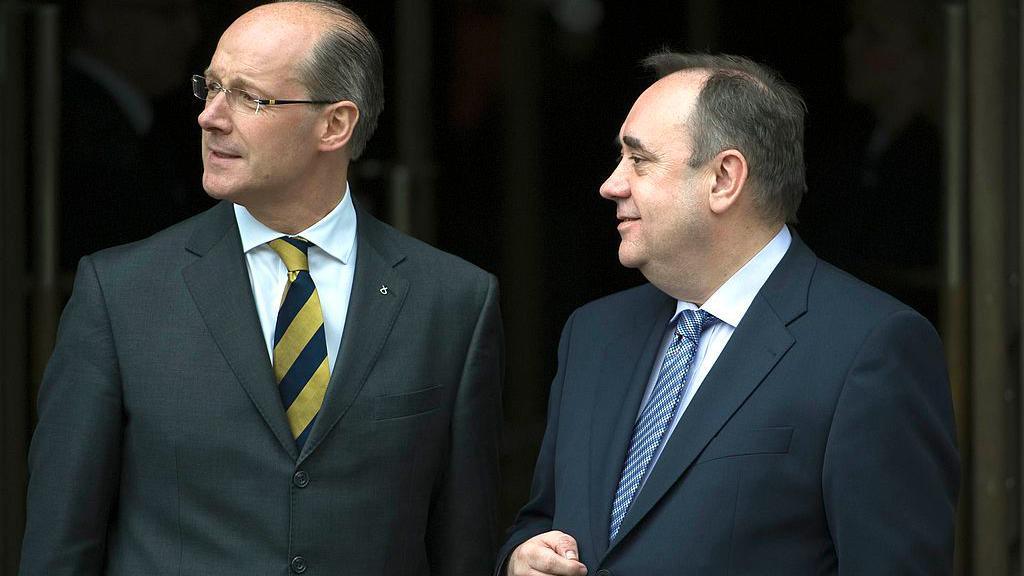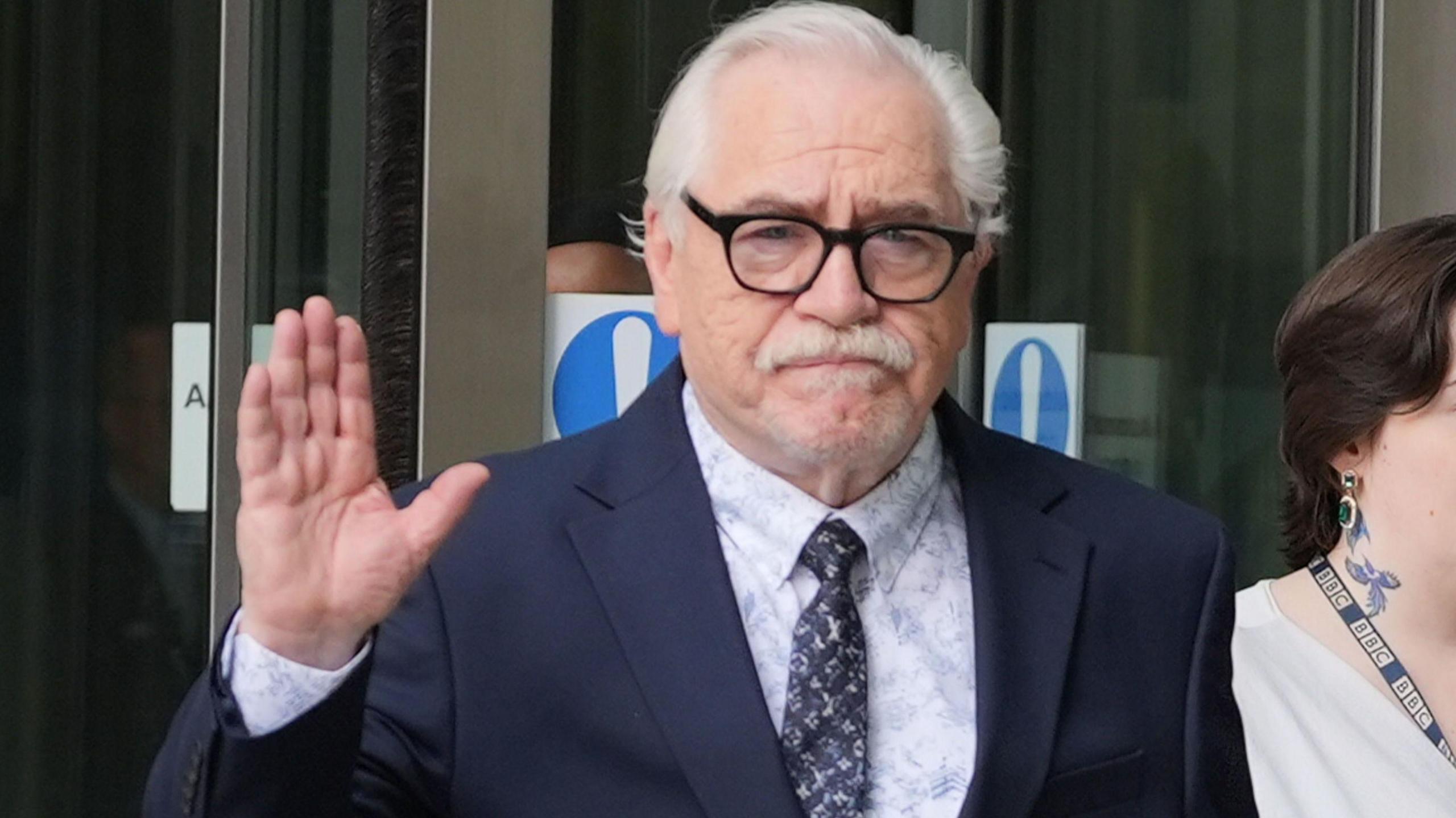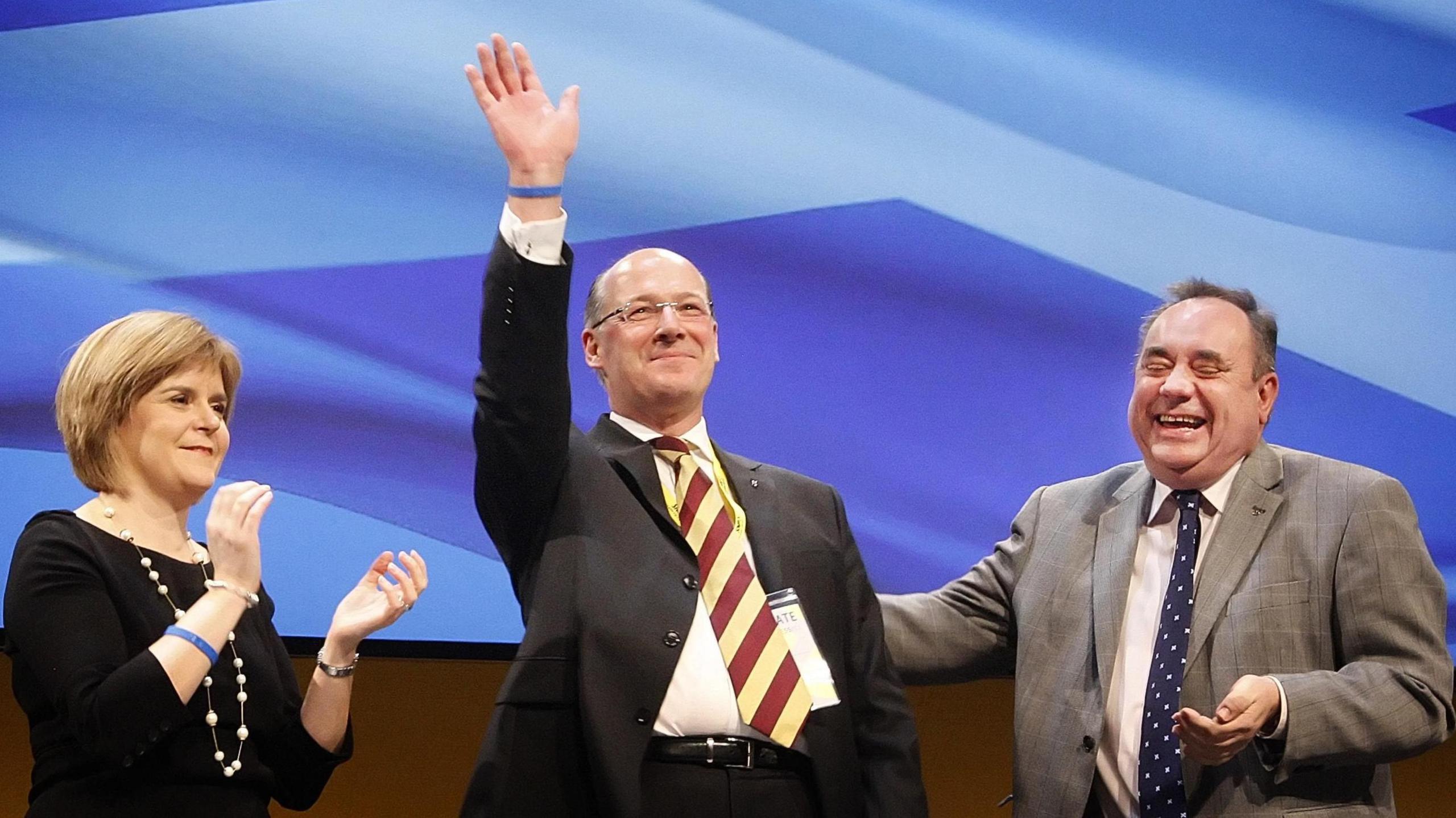Alex Salmond 'left footprint on Scottish politics', says Swinney

John Swinney served as finance secretary under Alex Salmond when he was first minister
- Published
Scotland's First Minister John Swinney has said Alex Salmond "inspired a generation" to believe in independence.
Tributes have been paid to the former SNP leader from across the political spectrum following his death in North Macedonia on Saturday at the age of 69.
Swinney, who served as finance secretary under Salmond, said he took the party from the fringes of Scottish politics to the heart of government.
He said the party's achievements since it came to power in 2007 were built on Salmond's "sense of drive" to serve the people of Scotland.
Asked about his predecessor's legacy, he told the BBC's Sunday with Laura Kuenssberg: "He inspired a generation of people to believe in Scottish independence and that generation is still believing in Scottish independence and still wants Scottish independence.
"Alec left a fundamental footprint on Scottish politics on that significant issue."
Swinney said Salmond would be remembered as a "very significant figure" in British politics who "led from the front".
The first minister added: "He had a very bold agenda about how he wanted to transform Scotland and to make Scotland an independent country."
Succession actor Brian Cox, who was a friend of Salmond, told the programme: "He was a lot of fun, he was very entertaining, he had great humanity.
"He was probably, I think, one of the greatest political thinkers that certainly Scotland has ever produced - I think possibly these islands have ever produced. He was an extraordinary man."

Actor Brian Cox leaves BBC headquarters in London after his appearance on Sunday with Sunday with Laura Kuenssberg
MSP Ash Regan, who defected from the SNP to Alba at Holyrood, said he was a “tour de force in politics, who took us close to independence”.
She wrote on X: “Alex had the nation believe in itself. My thoughts to his family, friends and all those who he inspired to dream.”
Salmond, who led the Scotland between 2007 and 2014, became ill while attending an international conference.
The North Macedonian government said Salmond had lost consciousness at the Inex Olgica hotel, near the city of Ohrid, at about 15:30 local time (14:30 BST) on Saturday.
The organiser of the youth conference, Mark Donfried, said those attending the event were in "a state of shock".
He said Salmond took ill during lunch after a panel discussion on Saturday. Mr Donfried said he had been told the cause of death was suspected to be an "immediate massive heart attack".

Deputy First Minister Nicola Sturgeon and First Minister Alex Salmond alongside John Swinney at the 2011 SNP conference in Inverness
Salmond led the pro-independence side ahead of the referendum in 2014, and resigned as first minister after Scottish voters backed remaining in the UK by 55% to 45%.
He had led the SNP to power when they won the Scottish Parliament election in 2007, having previously been the party's leader between 1990 and 2000.
Salmond, Scotland's first pro-independence first minister, then led the SNP to an unprecedented majority in the election four years later - which paved the way for the referendum to be held.
Under his leadership, the Scottish government also introduced popular policies including free NHS prescriptions and free university tuition fees for Scottish students.
After quitting as first minister, he had a spectacular fallout with Sturgeon over her government’s mishandling of harassment complaints against him.
Salmond was also cleared of serious sexual offence charges after a trial in Edinburgh in 2020.
After quitting the SNP, Salmond set up an alternative independence supporting party, called Alba, of which he was the leader.
He also hosted his own show on the controversial Russian broadcaster RT, but suspended it following the invasion of Ukraine in 2022.